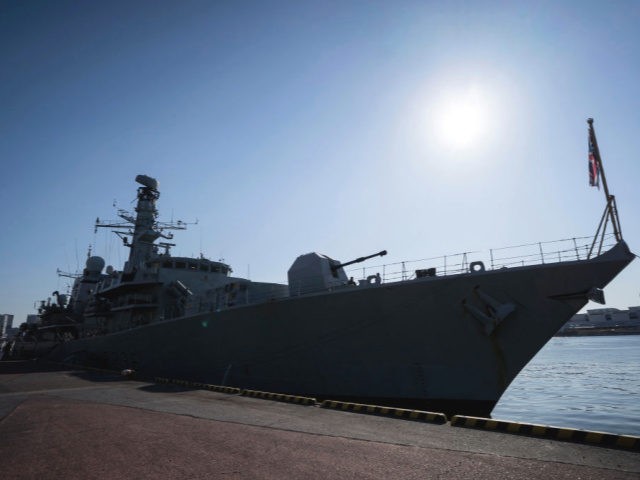Iran this week repudiated reports from the U.K. that a Royal Navy frigate aimed its deck guns and issued verbal warning against three Islamic Revolutionary Guard Corps (IRGC) gunboats, forcing them to flee and abandon plans to seize a British oil tanker in the Strait of Hormuz.
On Thursday, the state-run Tasnim News Agency reported that, in a statement, the public relations department of the IRGC Navy’s fifth fleet reportedly declared:
The IRGC Navy’s patrols in the Persian Gulf are being carried out according to routine methods and ordered missions with smartness, precision, and power. … Over the last 24 hours there have been no encounters with foreign vessels, including British vessels. In the event that a command is received for the seizure of foreign vessels, the IRGC Navy’s fifth naval zone, in its geographical area of mission, is able to do so immediately, firmly, and promptly.
Wednesday’s incident that pitted Iranian gunboats against a much more powerful British frigate, HMS Montrose, dealt a blow to Shiite powerhouse’s intensified bragging about its military might in recent weeks, claiming its invincible forces and deterrent capabilities are keeping Iran’s rivals at bay.
On Thursday, the IRGC, in highlighting its allegedly strong deterrence capabilities in a defiant tone, boasted that Tehran’s enemies dare not “fire even a single bullet” at Iran.
Iran’s move to go after the U.K. Royal Navy, however, prompted the IRGC, considered to be Iran’s most powerful unit, to withdraw from the area.
Trying to distance itself from the incident on Wednesday, the Navy component of the IRGC, a U.S.-designated terrorist outfit, “dismissed as baseless claims that its forces have attempted to capture a British oil tanker in the strategic Strait of Hormuz,” the state-run Tasnim News Agency reported Thursday.
The Strait of Hormuz is considered one of the most strategically important, heavily trafficked, and contested waterways in the word.
The Iranian aggression against the British oil tanker “followed threats from Tehran that London would face consequences for the seizure of an Iranian supertanker [violating U.S. sanctions] near Gibraltar last week,” Tasnim noted.
In a statement issued Thursday about its confrontation with Iran, the U.K. Ministry of Defense declared:
Contrary to international law, three Iranian vessels attempted to impede the passage of a commercial vessel, British Heritage, through the Strait of Hormuz.
[British frigate] HMS Montrose was forced to position herself between the Iranian vessels and British Heritage and issue verbal warnings to the Iranian vessels, which hen turned away.
We are concerned by this action and continue to urge the Iranian authorities to de-escalate the situation in the region.
Strained relations between Iran and the U.K. come against the backdrop of heightening Washington-Tehran tensions. On Wednesday, the Guardian reported:
The United States hopes to enlist allies in the coming weeks for a military coalition to safeguard strategic waters in the Persian Gulf where Washington blames Iran and Iran-aligned fighters for attacks, the Penatgon’s most senior general has said.
Under the plan, which has only been finalized in recent days, the US would provide command ships and lead surveillance efforts for the military coalition in seas off Iran and Yemen. Allies would patrol waters near those US command ships and escort commercial vessels with their nation’s flags.
U.S. President Donald Trump’s implementation of an unprecedented wave of sanctions, including those suspended under the 2015 nuclear accord between Tehran and U.S.-led world powers, have crippled the Iranian economy and the government is feeling the crunch, according to the U.S. Department of State. Trump pulled the U.S. under the pact, arguing that it is not tough enough on Iran and fails to prevent it from getting a nuclear weapon.

COMMENTS
Please let us know if you're having issues with commenting.